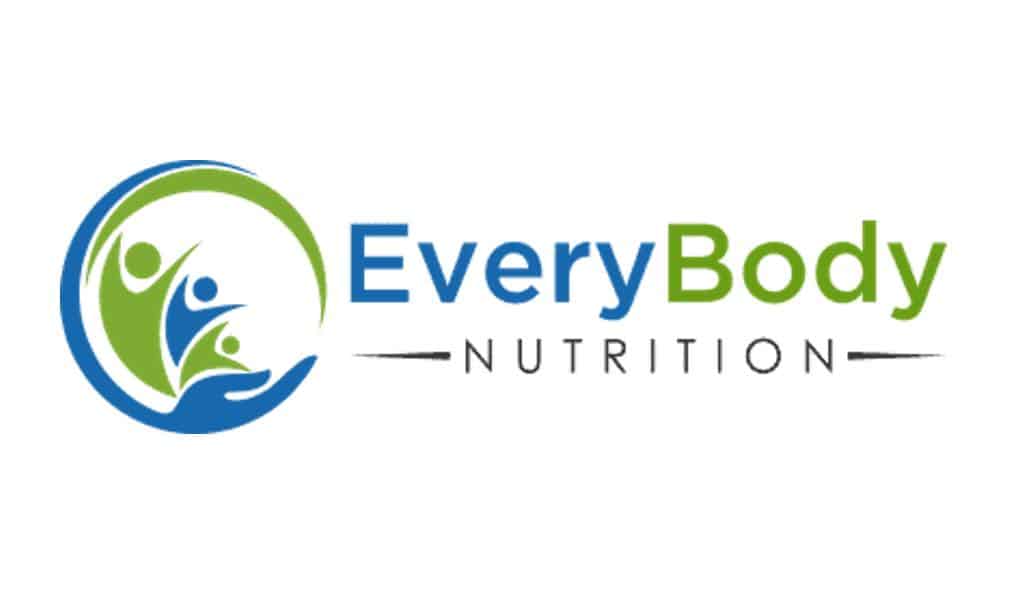Introduction
In this exploration, we’ll dive into the aspects of well-being and the power of health and nutrition, and how each can be leveraged to elevate your daily performance. Let’s review four of the most impactful methods to achieving your individual fitness goals.
Defining a healthy lifestyle
A healthy lifestyle isn’t just about steering clear of illness; it’s about building a resilient and vibrant existence that thrives in the face of life’s challenges. Let’s break down what it means to lead a healthy life, focusing on practical aspects that resonate with a straightforward and strong approach.
1. Fitness tips for life
Benefits of regular exercise
Exercise is the engine that keeps the body running smoothly. It enhances cardiovascular health, boosts mood, and supports weight management. Exercise isn’t just a task; it’s a commitment to strength and vitality. It’s about pushing your physical limits, celebrating the power of the body, and embracing the determination required for real fitness. Exercise is a battle against complacency, a disciplined pursuit of physical prowess to dominate in all aspects of life.
Create a balanced routine
Incorporate a mix of cardiovascular exercises, strength training, and flexibility exercises into your routine. This ensures comprehensive fitness and prevents monotony.
Set realistic goals
Establish achievable fitness goals to keep yourself motivated. Whether it’s running a certain distance, lifting a specific weight, or mastering a new exercise, set targets that push you to be better.
Make it enjoyable

Find activities you genuinely enjoy to make exercise a sustainable part of your lifestyle. Whether it’s working out at the gym, hiking, or playing a sport, choosing enjoyable activities increases the likelihood of consistency.
Mix up your routine
Avoid monotony by varying your exercises regularly. This not only keeps things interesting but also challenges different muscle groups delaying any possible plateaus.
Prioritize consistency over intensity
Consistency is key to reaping the long-term benefits of exercise. Focus on establishing a regular routine before ramping up the intensity. Remember, the goal is to cultivate a sustainable and enjoyable exercise routine that becomes a natural part of your lifestyle. This may be the MOST IMPORTANT ASPECT of all fitness/health journeys.
Importance of cardiovascular workouts
Cardiovascular workouts are the heartbeat of a healthy fitness routine, providing a cascade of benefits that extend beyond the confines of the gym. Engaging in various types of zone cardio training ensures that you not only elevate your heart rate but also tailor your workouts to specific fitness goals. Let’s explore the importance of cardiovascular exercises and dive into different zones for an effective and personalized cardio routine.
Heart health
Cardio exercises, be it running, cycling, or swimming, are all excellent vehicles for your cardiovascular system. They strengthen the heart, enhancing its ability to pump blood efficiently. A robust cardiovascular system lowers the risk of some heart diseases, hopefully ensuring a healthier and more resilient heart.
Improved circulation
Elevating your heart rate through cardio workouts promotes better blood circulation. This, in turn, ensures that oxygen and nutrients are efficiently delivered to every part of your body. Improved circulation contributes to enhanced energy levels, quicker recovery, and overall vitality.
Weight management
Cardiovascular exercises play a pivotal role in weight management. They burn calories, aiding in weight loss or weight maintenance when combined with a balanced diet. Whether you’re aiming to shed extra pounds or sustain a healthy weight, cardio workouts contribute significantly to achieving your goals.
Stress reduction
Cardiovascular activities act as stress busters. They trigger the release of endorphins, the body’s natural mood lifters, promoting a sense of well-being and reducing stress levels. Incorporating cardio into your routine can be a powerful way to unwind and alleviate the pressures of daily life.
Zone training
Finding the right balance between cardio zones allows you to tailor your workouts to your fitness level, goals, and preferences. It’s not just about elevating your heart rate; it’s about doing so strategically to maximize the benefits for your heart and overall health.
2. Nutrition tips for improved health
Essential nutritional health

Nutritional health forms the bedrock of overall well-being, influencing energy levels, immune function, and the body’s ability to thrive. Achieving a balanced and nutrient-rich diet involves understanding the importance of both macronutrients and micronutrients. Let’s explore these essential elements in greater detail to guide you toward optimal nutritional health. A healthy lifestyle revolves around fueling your body with the right nutrients. It’s not about complicated diets; instead, it’s about incorporating wholesome, hearty foods like lean proteins, vegetables, and whole grains. Food is your fuel, the foundation for energy, muscle, and the resilience needed to tackle life’s demands.
Balancing macronutrients
Carbohydrates
Proteins
Carbohydrates are the body’s primary source of energy, crucial for fueling daily activities and supporting physical performance. Examples include whole grains like brown rice, quinoa, and oats, as well as starchy vegetables and legumes.
Proteins are the building blocks of tissues, muscles, and organs. They support muscle growth, repair, and overall cellular function. Examples include lean protein sources such as poultry, lean meat, fish, tofu, beans, and legumes.
Fats
Healthy fats are vital for brain function, hormone production, and the absorption of fat-soluble vitamins. They also provide a long-lasting source of energy. Examples include sources of healthy fats such as avocados, nuts, seeds, olive oil, and fatty fish like salmon.
Practical tips
Aim for a balanced distribution of macronutrients in your meals to ensure sustained energy throughout the day. Experiment with different sources within each macronutrient category to enjoy a diverse and flavorful diet.
Incorporating micronutrients
Vitamins
Vitamins play critical roles in various bodily functions, including immune support, wound healing, and energy metabolism. Examples include consuming a variety of fruits and vegetables, such as citrus fruits for vitamin C, leafy greens for vitamin K, and carrots for vitamin A.
Minerals
Minerals are essential for bone health, fluid balance, nerve function, and the formation of red blood cells. Examples include including mineral-rich foods like dairy or fortified plant-based milk for calcium, nuts and seeds for magnesium, and lean meats for iron.
Practical tips
Embrace a colorful and diverse array of fruits and vegetables to ensure a broad spectrum of vitamins and minerals. Consider seasonal and locally sourced produce to maximize the freshness and nutrient content of your meals.
Overall dietary guidelines
Moderation and variety
Moderation ensures a balanced intake of nutrients, while variety exposes your body to a broad range of essential compounds. Examples include rotating your protein sources, experimenting with different grains, and varying your vegetable choices.
Hydration and its impact
Water is fundamental to every physiological process. Stay adequately hydrated throughout the day to support digestion, nutrient transport, and overall health. Examples include drinking water, herbal teas, and including hydrating foods like watermelon and cucumber in your diet.
Benefits of whole foods
Nutritional density
Whole foods are rich in essential nutrients, providing a wide array of vitamins, minerals, and antioxidants crucial for optimal health. Examples include fruits, vegetables, whole grains, lean proteins, and nuts for a nutrient-dense approach.
Fiber content
Whole foods are excellent sources of dietary fiber, promoting digestive health, regulating blood sugar levels, and contributing to a feeling of fullness. Examples include opting for whole grains like brown rice, quinoa, and oats, as well as legumes, fruits, and vegetables.
Slow energy release
The complex structure of nutrients in whole foods facilitates a slower release of energy, providing sustained fuel and preventing energy crashes. Examples include choosing whole, minimally processed carbohydrates like sweet potatoes, whole fruits, and whole-grain products.

Supporting long-term health
Regular consumption of whole foods is linked to a reduced risk of chronic diseases, including heart disease, diabetes, and certain cancers. Examples include incorporating a variety of colorful fruits and vegetables to maximize the health-promoting compounds they contain.
Practical tips
Prioritize whole, unprocessed foods when planning your meals. Explore farmer’s markets and local produce to access fresh, seasonal whole foods.
Avoiding ultra-processed foods
Additives and preservatives
Ultra-processed foods often contain artificial additives, preservatives, and flavorings that may have negative implications for health when consumed regularly. Examples include reading ingredient labels and avoiding products with a long list of additives and unfamiliar substances.
Reduced nutrient quality
The processing of foods may strip them of vital nutrients. Opting for whole alternatives ensures you receive the full spectrum of nutrients. Examples include choosing whole fruits instead of fruit-flavored snacks and whole grains over heavily processed cereals.
3. Prioritizing quality sleep
Quality sleep is the cornerstone of overall well-being, impacting your physical health, mental acuity, and emotional resilience. Establishing a pre-sleep routine and optimizing your sleep environment are crucial steps in ensuring restful and rejuvenating sleep. Let’s explore in greater detail how you can create a pre-sleep routine and set up an ideal sleep environment for the best rest possible.
Importance of adequate rest and sleep:
Quality sleep is a strategic advantage. It’s not just about rest; it’s a crucial part of your recovery and performance strategy. Sleep is a weapon, a daily reset that sharpens your focus and prepares you for the challenges of the day.

Experiment with different practices to find what works best for you, and make adjustments as needed to enhance the quality of your sleep. Quality sleep is a cornerstone of physical well-being. Prioritize consistent sleep patterns and create a conducive sleep environment for restful nights.
4. Establishing healthy lifestyle habits
Starting your day with intention and purpose sets the stage for a positive and productive journey ahead. A well-crafted morning routine is not just a series of actions; it’s a ritual that aligns your mind and body so you can perform your best.
Ways to be healthy every day
Create a morning routine to suit your preferences and lifestyle. Choose activities that bring you joy and resonate with your goals, such as incorporating a brief outdoor walk if you enjoy nature or prioritizing meditation if you prefer a moment of stillness. Introduce components of your morning routine gradually to allow for adjustment. This helps in establishing sustainable habits without feeling overwhelmed. For instance, start by incorporating one new element each week and gradually build up to a full routine.
Consistency is key
Consistency amplifies the benefits of a morning routine. Aim to stick to your routine even on weekends, fostering a sense of stability. Establish a consistent wake-up time and allocate a specific duration for your morning routine.
Adapt as needed
Be open to adapting your morning routine based on changing circumstances or priorities. Flexibility ensures that your routine remains practical and fulfilling. If your schedule shifts, consider adjusting the duration or order of your routine to accommodate changes.
Conclusion
Your path to a fit, healthy life starts with integrating these top health and nutrition tips. Embrace a lifestyle that prioritizes exercise, nourishing food, and positive daily habits. Remember, small changes over time lead to lasting transformations. Live each day with vitality, and let the journey to wellness be your lifelong adventure.
Frequently Asked Questions (FAQs)
What does it mean to lead a healthy lifestyle?
A healthy lifestyle involves more than just avoiding illness; it’s about creating a vibrant life that can thrive even when faced with challenges. This includes regular exercise, balanced nutrition, quality sleep, and the establishment of positive daily habits.
What are some essential fitness tips for life?
- Benefits of Regular Exercise: Exercise supports cardiovascular health, boosts mood, and aids in weight management. It’s a disciplined pursuit that enhances physical and mental well-being.
- Create a Balanced Routine: Incorporate a mix of cardiovascular exercises, strength training, and flexibility exercises to ensure comprehensive fitness.
- Set Realistic Goals: Establish achievable fitness targets to stay motivated and track progress.
- Make Exercise Enjoyable: Engage in activities you enjoy to make fitness a sustainable part of your life.
- Consistency Over Intensity: Focus on maintaining a regular exercise routine rather than pushing for intensity right away. Consistency is key to long-term success.
Why are cardiovascular workouts important?
Cardio exercises strengthen the heart, improve circulation, aid in weight management, and reduce stress. Engaging in various types of cardio, like zone training, allows you to tailor your workouts to your specific fitness goals.
What are some essential nutrition tips for improved health?
- Balancing Macronutrients: Include a healthy balance of carbohydrates, proteins, and fats in your diet to support energy, muscle repair, and overall cellular function.
- Incorporating Micronutrients: Consume a variety of vitamins and minerals through fruits, vegetables, lean proteins, and whole grains to support immune function, bone health, and overall vitality.
- Moderation and Variety: Ensure a balanced intake of nutrients by rotating your food choices and experimenting with different grains, proteins, and vegetables.
- Hydration: Stay hydrated to support digestion, nutrient transport, and overall health.
What are the benefits of eating whole foods?
Whole foods are nutrient-dense, providing essential vitamins, minerals, and fiber. They promote digestive health, regulate blood sugar levels, and provide a sustained release of energy. Consuming whole foods regularly can reduce the risk of chronic diseases.
Why should I avoid ultra-processed foods?
Ultra-processed foods often contain additives, preservatives, and flavorings that can have negative health effects. They are typically lower in nutrients compared to whole foods. Opting for whole foods ensures you receive a full spectrum of essential nutrients.
How important is sleep for overall well-being?
Quality sleep is essential for physical health, mental clarity, and emotional resilience. It plays a crucial role in recovery and prepares you for daily challenges. Establishing a consistent sleep routine and optimizing your sleep environment are key to ensuring restful sleep.
How can I establish healthy lifestyle habits?
- Morning Routine: Start your day with intention by creating a morning routine that aligns with your goals and preferences. This could include exercise, meditation, or a healthy breakfast.
- Consistency: Stick to your routine consistently, even on weekends, to foster stability and long-term success.
- Adaptability: Be flexible with your routine, making adjustments as needed to ensure it remains practical and fulfilling.







